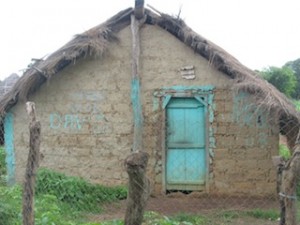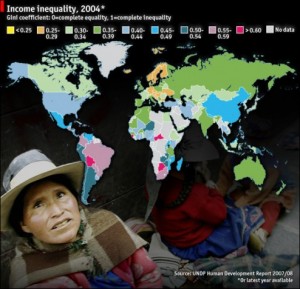By Conor Godfrey
This week the Swedish ambassador to Tanzania, Mr. Staffan Herrstrom, spoke to the Tanzanian daily The Citizen about early and/or forced marriage in Tanzanian society.
He spoke poignantly about his conversations with girls and young women across Tanzania, and outlined some of the social repercussions of forcing girls to wed at such a young age.
Mr. Herrstrom prescribes the following remedies:
· Prevent early marriages, not least by raising the marriage age for girls to the same as for boys: 18 years.
• Prevent early pregnancies i.e. by providing counseling and qualified education on sexual and reproductive health and rights.
• Make sure that all stakeholders, including the police, treat sexual abuse as the crime that it is – and the girl victims as the victims they are. Never ever doubling their burden by forcing them to marry the villains.
• Make sure that every single girl get the right to high quality education – regardless of marriages and pregnancies.
In so far as the ambassador’s ideas support education, I support them.
However, most of these fixes attempt to change an outcome without addressing the context that supports that outcome.
If early-marriage were an issue in Western Europe, it would only take a few years to eliminate the problem.
The health teacher would make sure young women understood the biology of pregnancy, as well as how to use various contraceptives.
Ideally, parents would then reinforce these messages at home and offer guidance and support in topsy-turvey world of teen-dating.
These young ambitious women would also recognize how a sexually transmitted infection or unwanted pregnancy would make their goals harder if not impossible to reach, and hence take ownership of their own choices and sexuality.
This sounds so effortless because the Western European culture supports each step of the process.
In the sub-Saharan bush, even if birth control were available on every corner, even if the law were to make it illegal to marry younger than 18, and even if police were instructed to penalize abuse harshly– I do not think much would change.
The law means nothing unless it reflects valid cultural attitudes.
Perhaps in societies where the rule of law prevails, legal codes have more transformative power, but in the Tanzanian bush, I doubt the official law book means very much.
Here is how I would recommend changing the cultural scaffolding in order to make Ambassador Herrstrom’s first three remedies more potent.
Increase women’s access to credit
: Women’s financial dependence on men supports the status quo. Women are not only better stewards of money, but also more likely to spend that money on family priorities.
Increase women’s access to training for marketable skills
: Financial literacy, artisan skills, agriculture, foreign language, etc… Fathers and family members will be less likely to marry a young daughter into another family if she is a financial contributor.
Health and Sanitation
: Prosperity starts with reasonable health. Reasonably nourished, healthy young women will succeed more often than their mal-nourished peers. They will also work more efficiently, leaving more time for studying and/or income generating activities.
Education
: I could not agree more with the ambassador. A quality primary and secondary education does more to change the cultural context than anything else.
For some, these suggestions will appear to attack the problem of early marriage too obliquely, but I am convinced that is the most effective way.
My friends and family tend to look at early marriage as a strictly moral issue. This characterization, though not without substance, tends to generate blunt solutions.
Outlaw it. Punish Offenders. Declare it in violation of the Universal Declaration of Human Rights.
Ok—but realize that most of the parents who marry their daughters off too young are not evil.
For the most part– neither are the men they marry.
The cultural context that informs their life can absorb and adapt to new information, take stock of changing realities, and chart a new course forward.
That cultural fluidity makes diversity fascinating, and sub-Saharan Africa one of the most exciting places on the planet.
The end of early marriage cannot be willed, or declared into existence. It must work its way through that cultural matrix until one day it becomes painfully obvious that such a practice no longer corresponds to social needs and realities. Unfortunately, this may take generations.



